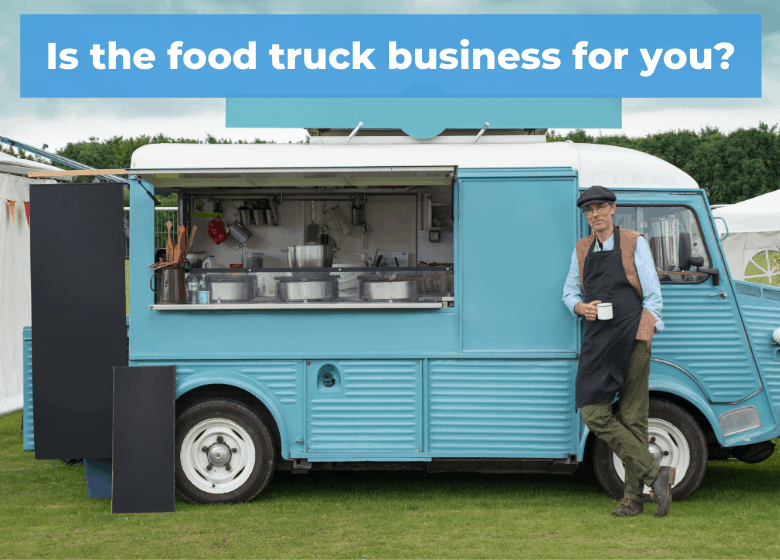You’ve decided you want to own a business that allows you the flexibility to move around and work your own hours.
You’ve seen a food truck business for sale and think it might be the right option.
Having worked with many mobile food and beverage businesses, we’ve put together a short guide on what you should consider before committing to buy a food truck business.
1. Have you done your market research?
Consider the following questions:
- Who are your target customers?
- What locations do you intend to focus on?
- How much competition is there in those areas?
Simply visiting the targeted locations and speaking to the locals will provide a good starting point for how your intended business will be received.
Other food truck business operators may be quite territorial. It’s advisable to speak to council or event organisers to ensure that you are not encroaching on someone else’s “turf”.
2. What’s your budget?
Decking out a food truck or van is by no means a cheap exercise. You need to consider the vehicle itself, the equipment, alterations, and all the other hidden costs that can quickly add up.
We suggest sitting down and compiling a list of all the potential costs. Then ask yourself if it is a viable option.
If you plan to finance the purchase of your vehicle and/or equipment, we suggest speaking to a finance broker who can talk you through the process.
3. Are you adequately protected?
Buying any business involves an inherent risk that something could go wrong. We suggest looking at the following insurances:
- Vehicle
- Public liability
- Damage and theft
We partner with Brookvale Insurance Brokers, who are the industry leaders for food truck businesses. They can discuss all of your insurance needs with you.
Additionally, you will need to ensure that you comply with the health and food safety regulations in your state.
A good starting point is: https://ablis.business.gov.au/. This will point you towards the relevant regulations in your state.
4. What are the GST & tax implications for the business?
If you are forecasting your sales to be more than $75,000 over a 12-month period, you’ll need to be registered for GST.
How does GST work? Well, if you calculate $5 per sandwich in order to cover costs and turn a profit, you will need to charge the customer an additional 10% GST (so, $5.50 for the sandwich).
Being registered for GST also has its benefits early on when you are buying your equipment. You may find that you will get a refund once major items have been purchased, which is great for cashflow at a time when there may be no income.
Tax will vary on profits and which business structure you trade from: sole trader, company or trust, for instance.
It will be worthwhile speaking to an accountant to help navigate the different business structure options and select the one that provides you and your family with the greatest tax savings overall.
5. Have you learnt from the mistakes of other food truck businesses?
Other food truck businesses we’ve worked with in the past have made mistakes. We can learn from these.
Bear in mind the following:
- Before outlaying huge amounts of money to purchase your equipment, trial your offering in a market stall local to the area you are targeting. This will provide great feedback on your products.
- Make your food and drink (or even the location) “Instagram worthy”: big likes can sometimes lead to big sales.
- Ensure the height of the serving counter is appropriate. For example, if kids can see certain items, they may pester their parents to buy it for them!
If you’ve seen a food truck business for sale and have questions, Kyle Knight at Eagle Financial can help you make a sound decision and guide you through the buying process, if necessary.
Contact him here: [email protected]


Leave A Comment